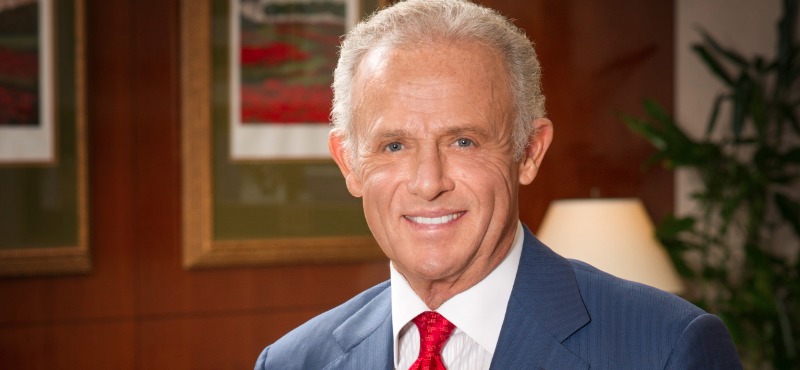On February 7, 2014, the University of California football team was finishing up a strenuous early morning workout when Ted Agu, a walk-on defensive lineman, repeatedly collapsed. After his final collapse, Agu was transferred to a nearby hospital, where, at just 21 years old, he was pronounced dead.
Initially, the Alameda County coroner’s office attributed Agu’s death to hypertrophic cardiomyopathy, a condition that impedes the heart from pumping blood. University officials meanwhile reported that the workout had been routine and that Agu had been helped as soon as he started struggling. But Agu’s teammates who had witnessed the tragic event came forward and told a different story.
“Depositions proved that the workout was new, designed to push players to their edge and way beyond it,” says attorney Steve Yerrid, the lead lawyer representing Agu’s parents in their wrongful death lawsuit against the university. “Numerous players also testified that Ted had been visibly struggling for an extended period of time, and that team trainers and coaches failed to intervene or provide assistance until after his final, fatal collapse.”
“Team trainers and coaches failed to intervene or provide assistance until after his final, fatal collapse.”
Indeed, the sworn testimony elicited in the case raised questions as to whether campus officials had provided the coroner’s office with the complete police report, complete witness statements, accurate factual information, and medical records indicating Agucarried sickle cell trait—a blood disorder that can activate and cause death under prolonged and extreme exertion.
“Cal doctors and coaches knew of Ted’s condition since his freshman year in 2010, and once the coroner’s office was informed of the real facts concerning the severity and length of Ted’s sickling symptoms, the County’s chief medical examiner changed the official cause of death from cardiac death to exercise collapse associated with sickle cell trait,” explains Yerrid, who relied on Tampa lawyer Jeff Murphy and well-known California attorney Brian Panish to meticulously prepare the case for trial.
In early 2016, after numerous depositions, the university finally admitted liability in Agu’s death and exonerated him from any wrongdoing. While this resolution of fault did not establish the amount of damages, the University of California ultimately settled the litigation shortly before trial by agreeing to pay Agu’s parents $4.75 million. UC also guaranteed a number of health and safety reforms across all 11 of its campuses, and agreed to provide coaches, team doctors, and players with further education on sickle cell trait, its associated complications, and methods of prevention.
“Monitoring players with sickle cell trait is a basic and essential safety requirement. We were astonished to learn that Cal’s head football trainer, Robbie Jackson, who ironically attended to Agu as he was dying, had a unique history that should have made him acutely aware of its dangers,” says Yerrid. Amazingly, six years before Agu’s death, Jackson, who was then a trainer at the University of Central Florida, had personally assisted Ereck Plancher, a 19-year-old UCF football player with sickle cell trait, when he collapsed during a workout. As in the Agu tragedy, the coaches and training staff failed to intervene until Plancher was in the latter stages of sickling, resulting in his death minutes later.
In 2011, as the lead attorney for Plancher’s family in their wrongful death jury trial, Yerrid, with a legal team that included his partner David Dickey and Tampa lawyers Jeff Murphy and J.D. Dowell, won a $10 million verdict against the UCF Athletics Association. But eight years after Plancher’s death, the appeals process remains ongoing and the Plancher family has yet to be compensated.
“Easily the best trial lawyer I have seen in my career.” – Tampa lawyer Jeff Murphy
“Despite our repeated overtures, UCF has chosen to protect its Ohio-based insurance company instead of the student athlete’s parents,” says Yerrid. “The insurance company, contracted and paid to provide $11 million in coverage, is clearly responsible for the damages in this horrific and unnecessary death case, but the insurance company has refused to pay, and the school has supported that decision. Frankly, the school’s conduct has been unconscionable, and I believe demonstrates an utter disregard for Ereck’s loss and the welfare of his parents.”
Yerrid has a long history of seeking justice against powerful and well-moneyed defendants. Over his four-decade career, he has won more than 250 verdicts and settlements of $1 million or more, including a $330 million verdict in 2009 that remains one of the nation’s largest wrongful death verdicts, and a $217 million verdict in 2006 that stands as the largest medical malpractice verdict in Florida’s history. Yerrid currently holds Tampa’s top five personal injury verdicts, all of which are $30 million-plus results (the most recent being a $64.5 million jury award for a man seriously injured in a building collapse, which was the largest verdict in Florida for 2015).
Along with these precedent-setting results, Yerrid regularly battles large defense firms and corporate giants in challenging and socially significant cases of personal injury, wrongful death, medical negligence, premises liability, and products liability. Murphy, who worked with Yerrid on the Plancher and Agu cases, calls him “easily the best trial lawyer I have seen in my career.” And Yankees owner, the late George Steinbrenner, a longtime friend and client, once noted, “If I were in a foxhole I’d want Steve Yerrid right next to me.”
Yerrid is currently part of a Florida team of trial lawyers representing more than 200 professional football players in landmark concussion-related litigation against the NFL. Moreover, his track record includes some of the country’s most influential legal cases.
In the mid-1990s, for example, Yerrid was the youngest of 11 private trial lawyers selected by the late Governor Lawton Chiles as part of his legal “Dream Team” to represent the State of Florida against the then unbeaten cigarette industry. Three weeks into the jury trial, Big Tobacco finally relented, agreeing to one of the largest civil settlements ever recorded—over $17 billion—as well as landmark advertising concessions that ended Joe Camel, retired the Marlboro Man, halted many of the industry’s marketing practices, and banned cigarette vending machines, billboards, and other forms of public advertising. In addition, millions of dollars from the settlement went to creating and funding the nationwide “Truth” campaign.
For Yerrid, who lost both of his parents to tobacco-related illnesses, the outcome was a deep personal victory in addition to being transformative for society (the incriminating “smoking-gun” documents obtained by the Dream Team and the settlement’s concessions were extended nationally, benefiting every state in the country). “There was a sea change in American culture regarding smoking as a result of our case, and that demonstrated the profound difference trial lawyers can make.”
Most recently, Yerrid secured a $27.4 million settlement for the City of Tampa in its lawsuit against BP over the 2010 Deepwater Horizon oil spill—the largest recovery of any city in Florida. As a result, Tampa Mayor Bob Buckhorn personally praised him and pledged to use the funds for community legacy projects. “Like many people, I was sickened by the rig’s explosion,” says Yerrid, an avid fisherman. “It was a tragedy both in terms of the eleven people who lost their lives and the profound damage to our environment. I was honored by the opportunity to hold BP responsible for its wrongdoing.”
Yerrid’s significant and far-reaching results have solidified his reputation as one of the nation’s best trial lawyers. This year, the National Trial Lawyers Association inducted him into its Hall of Fame—a group comprising 49 of the country’s most distinguished trial lawyers, who have all earned recognition as champions for justice.
“As a way to help people, I certainly chose the right profession,” says Yerrid, who also helps others through his family’s self-funded charity, The Yerrid Foundation, which has donated millions of dollars to more than 500 charities and causes over the years.
“My successes have always come about through the help of others, and that’s why I believe it’s important to give back and provide others with a helping hand. After many wonderful years of being a trial lawyer, what continues to drive me are those wonderful moments when I can say to a client, ‘Congratulations, you got justice.’”
































